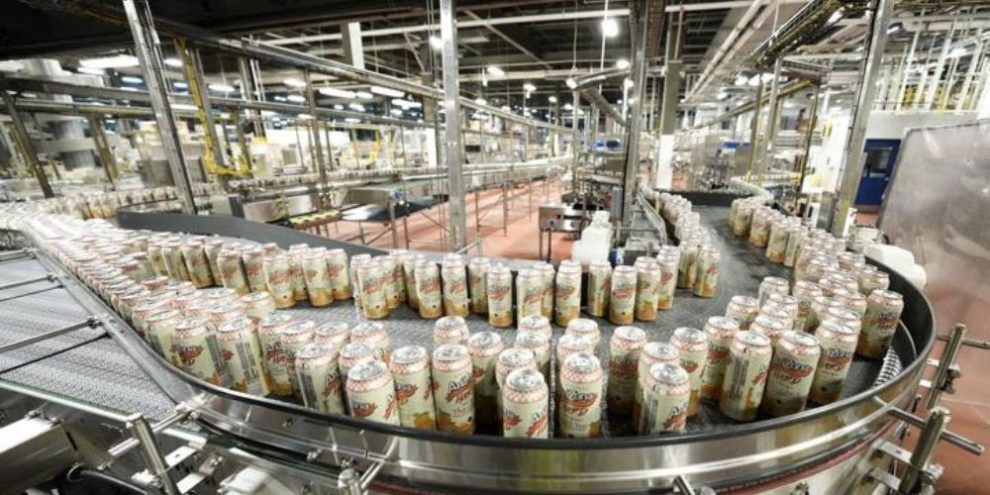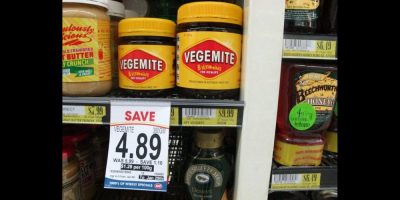
A waft of fruity scents surround you as you enter what's known as the flavour kitchen at the Molson Coors brewery in west Toronto.
The 23-acre facility — the company’s largest brewery in Canada — opened in 1955, and has for decades served as the base of its operations. It's there where popular beers such as Molson Canadian and Coors Lights are brewed, quality tested, and packaged before being shipped to stores and restaurants across the country.
On a late-May morning tour through the factory, the familiar aroma of beer-filled cans and bottles engulfing much of its footprint ends at the flavour kitchen, where it is replaced by jumbled notes of strawberry, peach, lemon and other fruits — smells you wouldn't have found here more than just a few years ago.
Barrie's News Delivered To Your Inbox
By submitting this form, you are consenting to receive marketing emails from: Central Ontario Broadcasting, 431 Huronia Rd, Barrie, Ontario, CA, https://www.cobroadcasting.com. You can revoke your consent to receive emails at any time by using the SafeUnsubscribe® link, found at the bottom of every email. Emails are serviced by Constant Contact
"I call this 'Flavour Town,'" says brewery general manager Tan Le, before listing off some of the products that originate there, from Coors Seltzer and Vizzy Hard Seltzer to Simply Spiked Lemonade.
As Anthony Purchase, vice-president of commercial operations for Canada, puts it: "We've got almost every flavour under the sun."
A small tank called a rapid mixer is in the midst of blending ingredients to produce a flavour concentrate, which will later be added to a vodka base to form one of Molson Coors' signature ready-to-drink (RTD) beverages: Arizona Hard Lemon Iced Tea. That same day, on a nearby production line, thousands of 473-millilitre, beige, yellow and turquoise cans are filled and later packaged.
The operation is part of Molson Coors' effort to stay on top of broader trends around consumer tastes as production of RTD cocktails ramps up throughout the industry. While beer has long been considered the drink of choice on summer patios and at backyard barbecues, experts say seltzers and coolers are now often favoured instead.
Molson Coors began producing spirits-based RTDs at its Toronto site in 2022, two years after the company began a pivot to a new identity. It now calls itself a "beverage company."
"Prior to that, it was all beer," said Le, calling it a "huge shift" for the Toronto brewery's operations.
It came with a $100 million investment to expand the capabilities at its Toronto and Fraser Valley breweries and meet growing demand for malt- and spirits-based drinks.
Five years in, RTDs are a key focus of the company's growth trajectory, said Purchase, noting the category is now about one-quarter the size of its total beer operations and continues to grow by double digits year-over-year.
He said while Molson Coors has a 30 per cent share of beer sales throughout Canada, it has also already established a 10 per cent share in RTDs and 20 per cent for seltzers, specifically.
Other Canadian beer companies have undergone a similar transition, said food and drink researcher Candace Baldassarre, pointing to the success of Labatt Brewing Co.'s Cutwater Canned Cocktails and SVNS Hard 7UP.
Baldassarre, a senior analyst at market research company Mintel, said surveys conducted by the firm indicate consumption of RTDs jumped from around 29 per cent of respondents in 2021 to 62 per cent this year.
Statistics Canada's data around sales of alcoholic beverages tells a similar story, as the ciders, coolers and RTDs category grew by 88.9 per cent from 2018-19 to 2023-24.
"This growth there is absolutely undeniable," she said.
So, too, is a link to the COVID-19 pandemic, which prompted a change in drinking habits, said Baldassarre. Lacking a pub to attend, RTDs and coolers grew more popular as people made outdoor parks their prime gathering spots for social events.
"You have all these people that wanted something convenient and easy to carry, but didn't necessarily want to drink beer," she said.
"You also have the explosion of flavours. The beer category has seen different products emerge, but ultimately, the plethora of flavours that you'll see with RTDs is just enormous."
Baldassarre added RTD variants include sugar-free and low-calorie options that appeal to a health-conscious consumer in a way many beer varieties historically haven't.
"I think beer, for a lack of word, is maybe a little bit less cool to younger consumers," she said.
"The majority of consumers that don't drink beer, it's simply because they don't like the taste. So when you're now having all of these other options available, consumers are flocking to them."
At Molson Coors, Purchase said consumer preferences for its RTDs are all over the map. He said one of the challenges in the company's evolution has been staying on top of rapidly evolving tastes when it comes to seltzers and other flavoured drinks.
Customers are typically eager "to try what's new" when products are launched each spring, regardless of what appealed to them the previous summer, he said.
"What we've seen, it's a lot more cyclical ... meaning that you go through a lot more flavours, different fads, different trends," Purchase said.
"They want to try what they haven't tried before, and they kind of settle into their favourites by May long weekend and ride that through in the summer."
It's not just large, household brands navigating these shifting goal posts. Craft brewers like Cowbell Brewing Co. in Blyth, Ont., have also waded into the RTD waters so as to "fish where the fish are," said its president Natasha Fritzley.
"Fruity, easy to drink, light to drink," was the flavour profile she described as most popular when the RTD boom began in Canada more than half a decade ago. That prompted the 2019 launch of Cowbell's vodka-based Hijinx Hard Seltzer, including raspberry lemonade and peach cosmo varieties.
In recent years, she said there's been a surge in tequila-based beverages, which inspired the brewery to produce its Ranch Water lime tequila seltzer.
Fritzley, a board member of the Ontario Craft Brewers association, said there are advantages to producing both beer and RTDs on-site instead of trying to specialize in just one.
"What's really interesting about brewing facilities is that your equipment is diverse. You can use your brewhouse and your tanks on-site to produce a number of different styles of products outside of beer," said Fritzley, who is also chair of the Ontario Craft RTD Coalition.
"The upfront investment is quite minimal. You can utilize a lot of your brewing equipment to blend them."
While Fritzley admitted she initially wasn't sure if RTDs would amount to a short-term trend or long-term shift for the industry, she said it's now proven to be a game-changer.
She said that was accelerated last year in Ontario, when the provincial government made changes allowing grocery and convenience stores to sell beer, wine, cider and RTDs — with a requirement that those retailers allocate 20 per cent of shelf space by category to local producers.
Fritzley called it a win for craft brewers, who often previously saw their lesser known seltzers boxed out of provincially run liquor stores due to limited floor space reserved for better known brands such as White Claw.
"It's here to stay," she said of seltzers and other mixed drinks' place in the fabric of the alcoholic beverage industry.
"I do not think it's going anywhere and I think that's great. It's a really fun category to play in. There's so many flavour profiles that you can have lots of fun with."
Back at Molson Coors' Toronto brewery, Purchase said the company believes it still has a lot of untapped potential.
With just five years as a "beverage company" under its belt, he said Molson Coors knows its experience in these new waters pales in comparison to its rich history of brewing beer, which dates back to its foundation in 1786.
But Purchase believes flavoured drinks will be a vital part of the company's future.
"We've had to plan and replan several times based on what's going on in the economy around us. That has been true for 239 years in the beer category, where we're experts," he said.
"We've done a lot of learning and a lot of investment to scale up our capabilities over the last five years ... It's been fun. It's been fast and a lot of learning."
This report by The Canadian Press was first published June 27, 2025.
